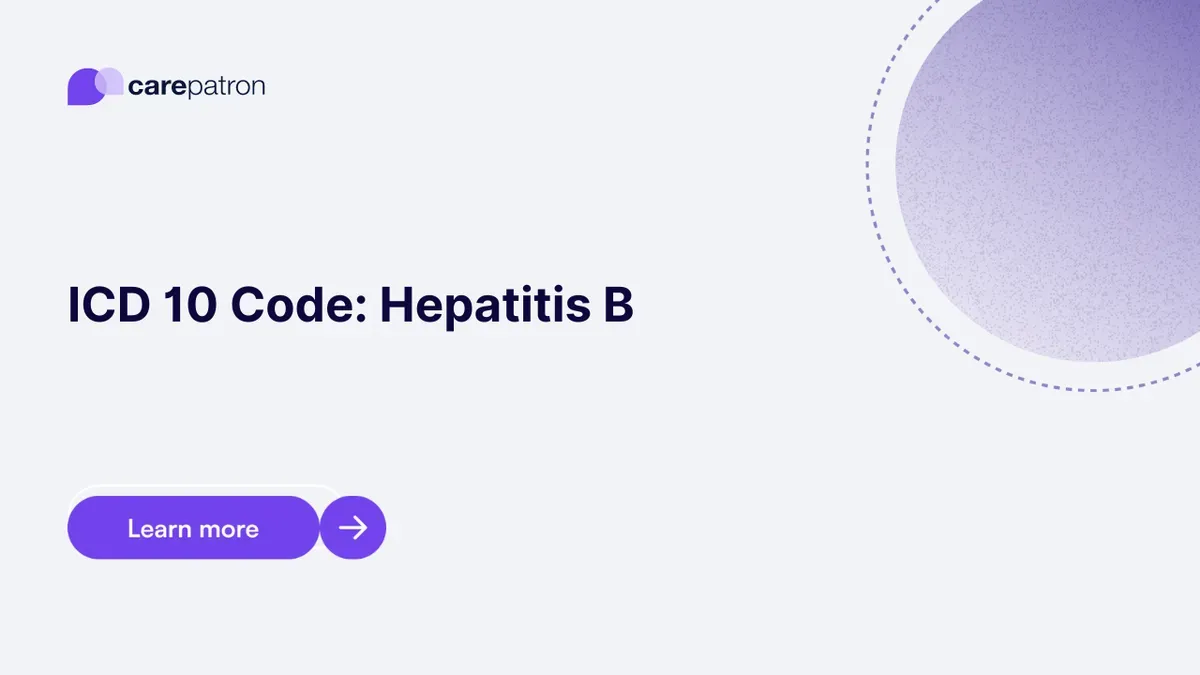
Hepatitis B ICD-10-CM Codes
Read this short guide and learn about hepatitis B ICD codes you can use.
Use Code
Commonly asked questions
Yes, there are distinct codes. For acute hepatitis B with delta-agent, the ICD code is B16.0, while for acute hepatitis B without delta-agent, the code is B16.9. These specific codes ensure precise diagnosis recording and facilitate effective treatment planning.
Luckily, vaccines exist for Hepatitis B, which should lower the chance of them getting it. It’s best to discuss this with your patients and convince them to get vaccinated.
Depending on the severity, some conditions may resolve without treatment. Healthcare professionals typically administer IV fluids, IV nutrition, and pain relief for acute, severe cases. In chronic instances, the action involves immune modulators and oral anti-viral medication, complemented by suggested lifestyle adjustments like adhering to a balanced, low-fat, low-sugar diet and minimizing or ceasing alcohol consumption. Surgery becomes a consideration only in instances where the liver is irreparably damaged.
EHR and practice management software
Get started for free
*No credit card required
Free
$0/usd
Unlimited clients
Telehealth
1GB of storage
Client portal text
Automated billing and online payments
